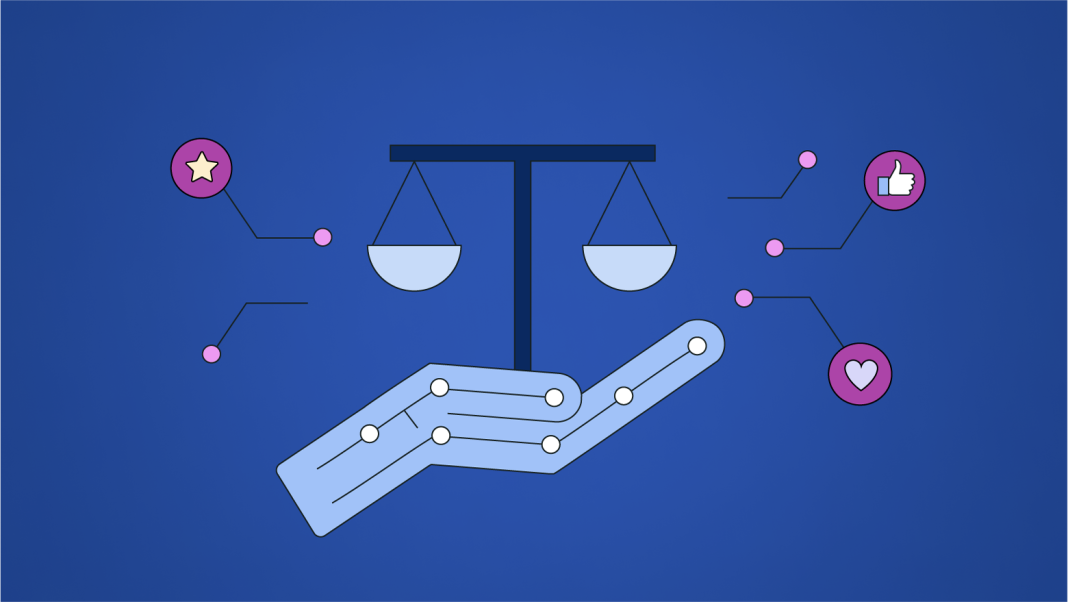Artificial Intelligence (AI) is transforming many facets of our life and has become an essential component of our contemporary environment. Artificial Intelligence (AI) technologies are changing industries and having a wide range of social impacts, from chatbots and virtual assistants to robots and machine learning. But tremendous power also comes with great responsibility, therefore it’s important to carefully analyze AI’s ethical implications. We shall examine the possible advantages and risks of artificial intelligence (AI), as well as the ethical issues they raise, in this blog post.
Potential Benefits of AI
Better Healthcare: AI has the ability to completely transform healthcare by helping with telehealth services, customized treatment, medication development, and diagnostics. AI-powered algorithms have the potential to improve patient outcomes and save lives by analyzing medical data more rapidly and precisely.
Enhanced Productivity and Efficiency: AI systems can automate monotonous jobs and streamline procedures in a variety of sectors, which boosts output while cutting costs. AI, for instance, may help with data analysis, enhance production procedures, and optimize supply networks.
Safety and Security: AI’s real-time analysis of massive amounts of data can improve safety and security. For example, surveillance systems with AI capabilities can identify questionable activity and assist in preventing crime. Autonomous cars have the potential to decrease accidents resulting from human mistake in transportation.
Environmental Sustainability: By maximizing energy use, streamlining resource management, and forecasting climatic patterns, artificial intelligence (AI) can help solve environmental issues. Artificial intelligence algorithms have the potential to enhance building energy efficiency and facilitate the development of sustainable farming methods.
Education and Accessibility: AI can support individualized education and give marginalized people access to educational materials. In order to accommodate different learning styles and close educational gaps, virtual tutors and adaptive learning systems might be used.
Potential Dangers of AI
Bias and Discrimination: If AI systems are educated on skewed data, they may unintentionally reinforce preexisting prejudices and discriminatory practices. This may lead to unjust treatment in the criminal justice system, loan industry, and employment market.
Loss of Privacy: Because AI is capable of processing and analyzing vast volumes of data, privacy issues may arise. For example, facial recognition software driven by AI may be abused for widespread monitoring.
Job displacement: Workers in some industries may lose their jobs as a result of AI’s automation of various functions. This may make economic disparities worse and necessitate innovative methods for workforce education and retraining.
Accountability and Autonomy: Since AI systems have different levels of autonomy, there are concerns regarding transparency and accountability. Determining the culpability for errors or harm caused by AI systems can be difficult.
Weaponization of AI: AI can be used for harmful purposes, such as the development of autonomous weapons. This raises ethical concerns about the role of AI in warfare and the potential for unintended consequences.
Addressing Ethical Challenges
To navigate the ethical challenges of AI, stakeholders must work together to establish ethical guidelines and standards. Here are some key approaches:
Transparency and Explainability: In order to help users understand how choices are made, AI systems should be clear and explainable in their design. Accountability and trust may be fostered in this way.
Bias Mitigation: It is the responsibility of developers to proactively detect and reduce biases in AI systems. Reducing prejudice can be aided by inclusive data sets and diverse teams.
Regulation and supervision: To guarantee that AI is utilized morally and sensibly, governments and organizations should set up explicit laws and supervision procedures.
Ethical AI Design: Fairness, safety, and respect for human rights should all be given top priority by AI engineers right from the start.
Public Engagement and Education: Informing people about artificial intelligence (AI) and its ethical ramifications can assist promote thoughtful debates and decision-making.
Conclusion
Although AI has a lot of promise to advance society, its ethical concerns cannot be disregarded. We can utilize AI’s capabilities for the greater good while limiting possible risks by proactively tackling ethical problems and guaranteeing responsible AI development. Governments, business, and academic institutions must work together to shape AI’s future in a way that is both morally and environmentally sound.


